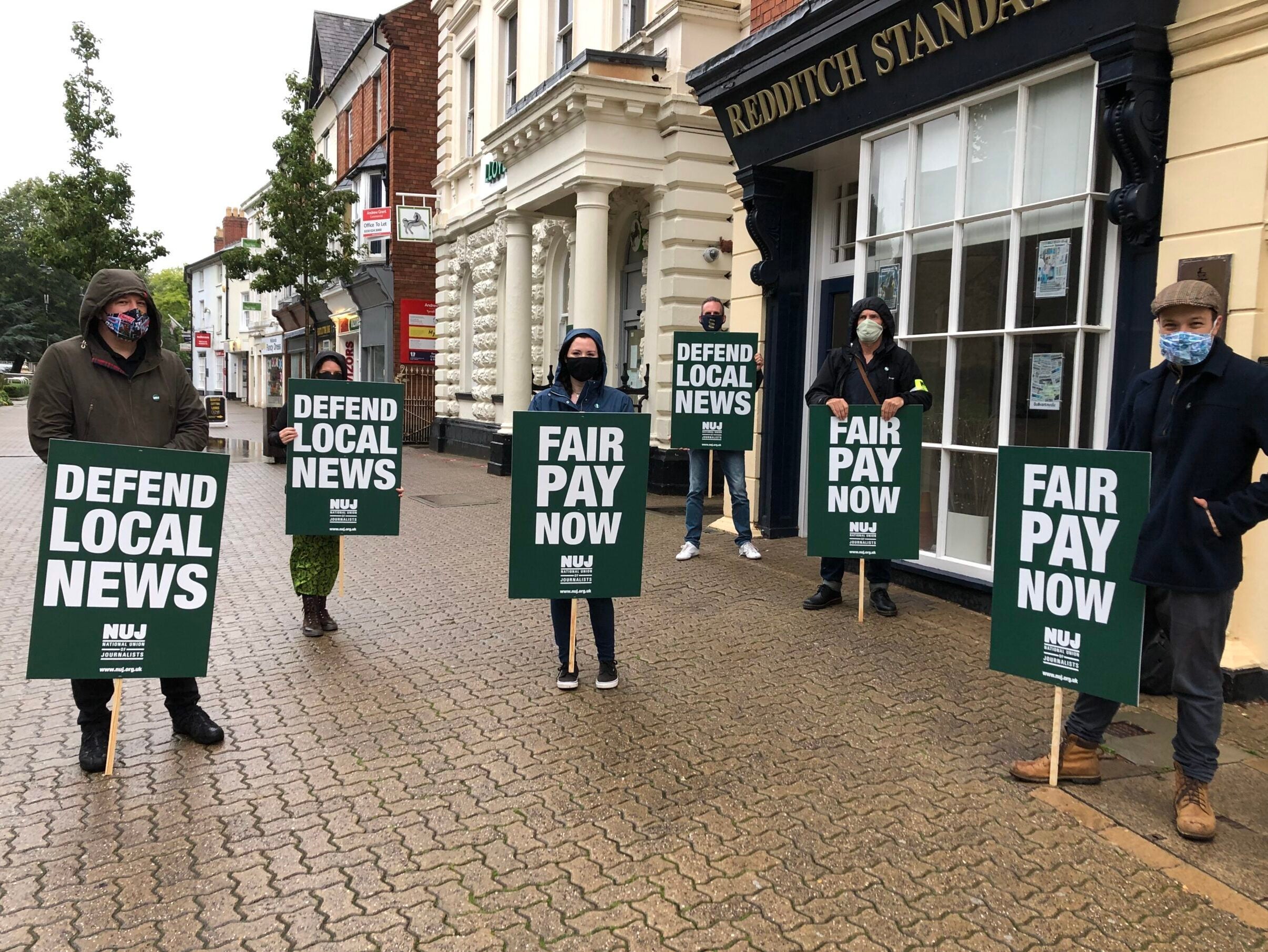
Most of Press Gazette’s readers got a pay rise this year, according to the results of our salary survey.
And most of those who received a pay rise said it was in excess of 5%.
So far this year, journalists at Reach, Al Jazeera and National World’s Scottish titles have been among those in the UK who have either taken strike action or been vocal in expressing their discontent about pay and conditions.
Over 260 respondents filled in our salary survey, which was carried out in October and November and was sent only to newsletter subscribers.
Of those who responded, 247 shared their 2021 and 2022 salaries with us.
Respondents came from the news media and PR industries in the UK and abroad, and included freelances, journalists for small news outlets as well as senior executives working for some of the biggest names in news.
Among them were staff at Reach who, as a result of strike action by more than 1,000 journalists this summer, accepted revised pay offers in excess of the initial 3% increase offered by the organisation.
Also included were journalists at Gannett who in November staged a one-day walkout in 14 local newsrooms in the US.
Other newsrooms took a different approach. The Financial Times was one of the organisations that instead gave all staff a one-off payment (of £1,800 in this case) to help with the cost of living. Reach also gave staff similar, but smaller, payments.
UK news industry pay rises: Survey analysis
Overall, we found that 66% of respondents who shared their salary information with us reported that they had already seen or were expecting to see their pay increase between 2021 and 2022.
While the average increase was 13%, this figure will be affected by the fact that a few people reported large double-digit increases.
The largest single group of respondents (39%) reported increases of less than 5% between 2021 and 2022. To put that in context, consumer price inflation in the UK rose by 11.1% in the 12 months to October 2022. Around a fifth (21%) of respondents said that their expected salary increase was 10% to 19% - mostly above CPI.
Séamus Dooley, NUJ assistant general secretary, made the case for significant editorial pay rises this year saying: "The cost-of-living crisis compounded historic stagnant pay within journalism, and it is time employers took swift action to provide fair reward through above-inflation increases, for the significant contribution of their staff.
"The NUJ is engaged in negotiations across the UK and Ireland and we have secured pay increases. It has been a struggle to convince owners that pay increases are an absolute necessity. In negotiations we inevitably hear about the challenges facing business, including energy and printing costs.
"Some publishers seem blind to the fact that workers and their families also have to balance budgets. As we approach the 2023 pay round we will be seeking to build on modest achievements. Owners will have to accept the reality that staff cannot be put to the back of the queue."
An analysis of industry sectors also revealed stark differences.
Eighty-five per cent of respondents who said they were working in digital journalism said they had seen their salaries increase between 2021 and 2022. This is compared to just 50% of people in PR and marketing and 47% of people working in broadcast journalism- whether that’s TV, radio, or podcasting.
Breaking down the findings by job role also reveals some differences. Respondents who identified as editors or editor in chief were least likely to report a salary increase (58%) compared to 83% of sub-editors or production journalists and 75% of section editors.
Respondents who said they worked full-time from the office reported pay rises most often (75% of this group), closely followed by those who worked full-time but from home or in another remote setting (74%). Those who were self employed or freelance or working part-time were least likely to say they had seen their pay increase since 2021 - at 47% and 45% respectively.
When it comes to gender there was little difference with both two thirds of women and men reporting they had seen their paycheck increase or were expecting it to increase in 2022.
Analysis suggests, however, a large discrepancy in how much women and men’s salaries increased.
The 98 survey respondents who identified as female saw a collective 11% increase, while the 146 male respondents saw an overall increase of 32%. There were not enough respondents who identified as non-binary or who said they had no gender to draw a conclusion here.
"The NUJ has repeatedly called for improved pay transparency by gender, freelance rates, part-time contracts and social class," said Dooley. "The stark inequalities presented in these figures must serve as caution to all about the potential loss of journalists from our industry, seeking higher salaries to cope with rising costs."
Who filled out the survey?
While the poll sample was self-selecting, with readers choosing whether to take part, it still contained a large cross-section of responses from across the industry and beyond.
Respondents were anonymous but confined to verified Press Gazette email subscribers – with each subscriber only allowed to fill out the survey once.
Email pged@pressgazette.co.uk to point out mistakes, provide story tips or send in a letter for publication on our "Letters Page" blog
